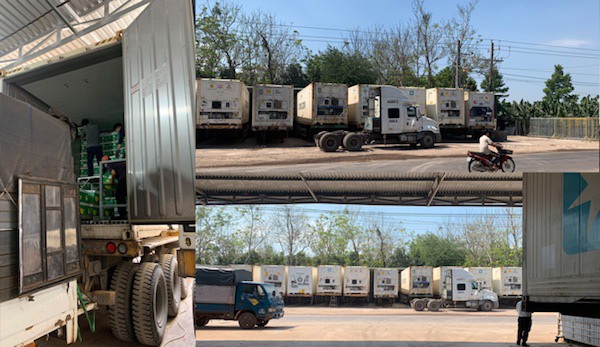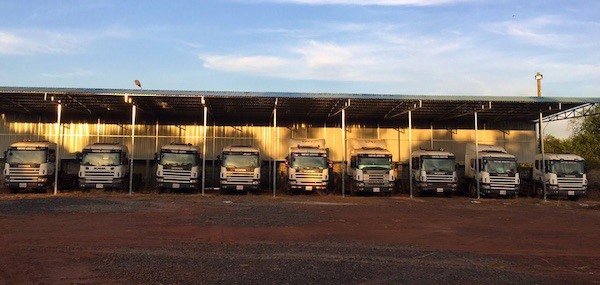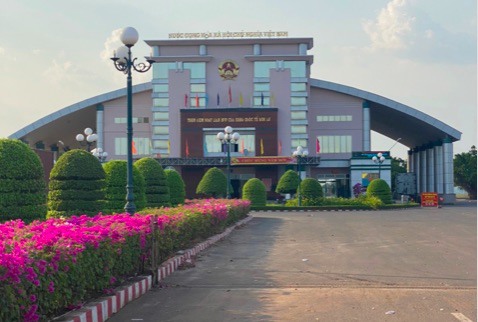As international trade expands, an increasing number of countries have obtained permission to enter the Chinese market. However, the challenges increase as well. There are certain food safety issues such as pesticide residue that require countries to meet safety standards, but there are other challenges as well, such as the efficiency of distribution.
Southeast Asia and South Asia have an advantage in the Chinese market over Europe and the USA, especially in terms of tropical fruit. First, Southeast and South Asia are near China, which makes transport easier, quicker, and cheaper. Second, the flavors in Southeast and South Asia are closer to the consumer preferences in China than in Europe or the USA. That is why Chinese consumers prefer fruit from Southeast and South Asia.

"China has more than 1.4 billion people. The country has an enormous annual demand for fruit. China imports around 30 million tons of tropical fruit per year. Chinese production areas of tropical fruit are mainly located in Yunnan, Hainan, and Guangxi. However, the overall surface area devoted to tropical fruit plantation shrinks every year because of climate change, and the harvest only takes place in summer.
"The supply season comes later every year. That is why many Chinese investors shift their attention to Southeast Asia. They cooperate with local farmers or directly import from production areas in the three great fruit suppliers Vietnam, Laos, and Cambodia." This is according to Billy, the business development manager at Vantage Logistics Corp.

The Vantage Logistics Corp motorcade at Cua Khau Hoa Lu
When asked about the impact of the pandemic on fruit transport between Southeast Asia and China, Billy answered, "The impact differs between countries. Each market struggles with their own set of transportation problems. Vietnam, Laos, and Cambodia commonly encounter the following issues when they transport fruit to China: Cat Lai port near Ho Chi Minh City handles about 70%-80% of the Vietnamese import and export volume, and more than 50% of the Cambodian import and export volume. That is why there is often a backlog in Cat Lai port and the ships are delayed. A delay in shipping can have disastrous consequences for fresh fruit because speed is of the essence with fresh agricultural products. If fruit is delayed too much the product quality will decline, and the price will drop. Some of the places that are quite distant from Cat Lai do not ship volumes large enough to warrant direct transport to China, for example Singapore or Klang. The overall journey takes a very long time and the cost price is quite high.
"Apart from that, the pandemic makes it impossible for employees to frequently cross the borders and the shipments require frequent disinfection. In addition, some of the major ports in China have to close down from time to time to reduce the spread of Covid-19."

Cua Khau Hoa Lu port in Vietnam
Vantage Logistics Corp. has years of experience in international distribution services. The company has taken a variety of measures to prevent the spread of Covid-19 and secure their supply chain. In this way the company helps producers and importers to keep their cost low and strengthens the competitive position of Southeast Asian fruit in the Chinese market.
"We receive great client feedback at the moment. Our distribution efficiency attracts a lot of traders from central Vietnam, north Cambodia, and south Laos. Actually, the traders are not just from Vietnam, Cambodia, Laos, and China. We also have clients in other parts of Asia. We transport a variety of agricultural products including bananas and dragon fruit," said Billy.
For more information:
Billy - Business development manager
Tel.: +84 938 189 278
E-mail: billy.sgn@vlc.com.vn
WeChat ID: zengzhaoquan1968
Audrey Liang
Tel.: +84 839 688 194
E-mail: audrey.sgn@vlc.com.vn
Vantage Logistics Corp
Website: www.vantage-logistics.com.vn
